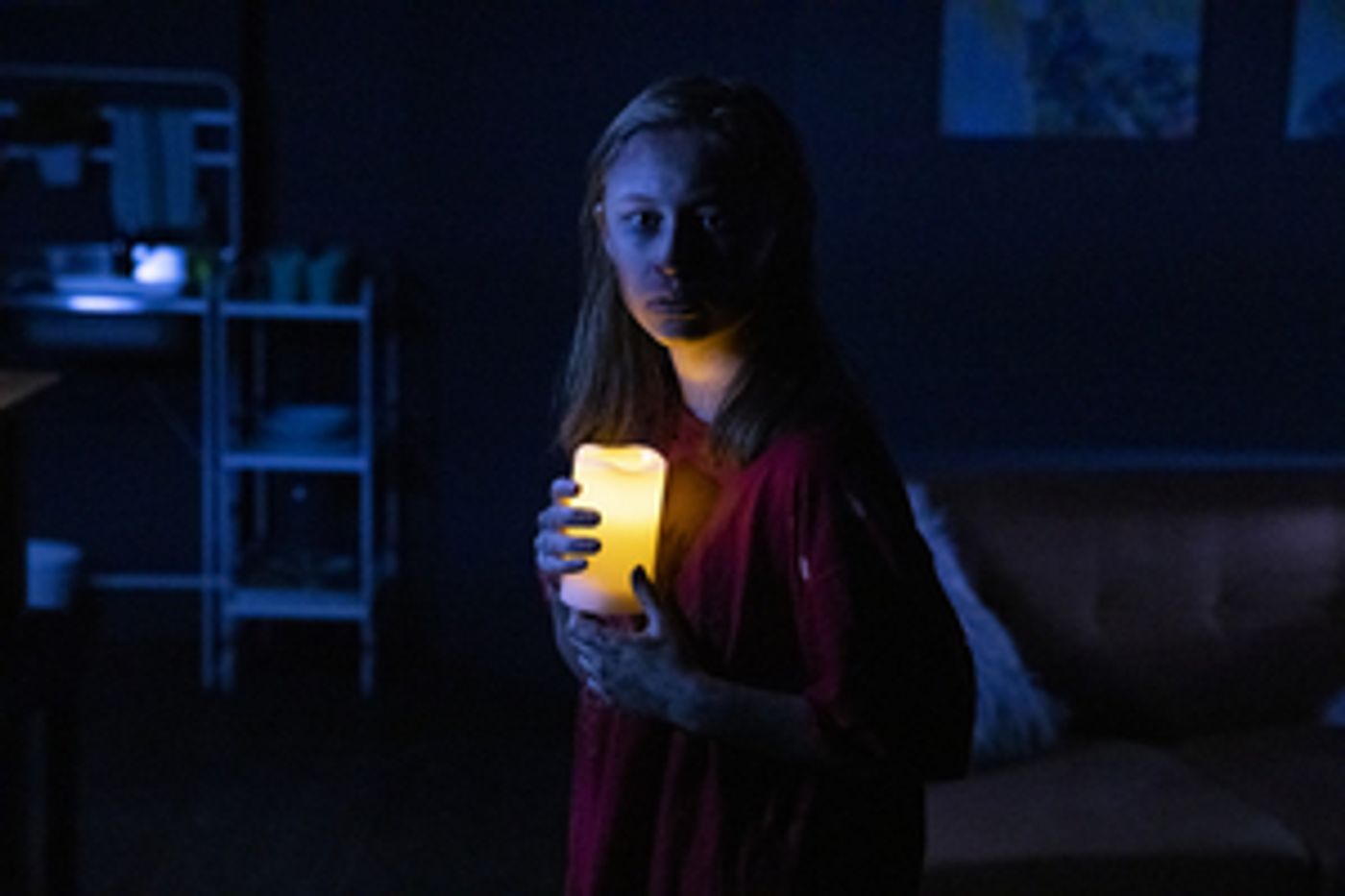Review: NOT EVEN THE GOOD THINGS at Theatre Row Meditates on Loss in All its Forms

A small, young girl (Serena Parrish)-tattered and dirty-walks across the living room of a cabin. She's holding a candle, taking in her surroundings with laser focus. She's a whisper; a ghost living in the shadows. Then everything goes black.
But not for long. The energy in the room suddenly reverses, flooding with bright lightness as lovers Grace (Victoria Janicki) and Bill (Sea McHale) enter, who upon first impression, are ready for a raucous and rambunctious weekend getaway.
This is how Not Even the Good Things by Joseph Scott Ford begins. A play that is self-aware of its own hypocrisies and conundrums, Not Even the Good Things comes out swinging, making you immediately question what is "the truth", what is inference, and what is the loss of something you once had.
When Grace and Bill (with a wonderfully-subtle performance by McHale) are joined by friends and couple Donald (Mickey Roberts) and Jackie (Allie Trimm), the evening takes audience goers on an emotional rollercoaster. As the power goes out and the mysterious girl reappears-who is only visible to Bill, by the way-Jackie's fear of the dark comes to the surface. This discovery makes Bill question his own past trauma, and his recent parting ways with his religious identity. But this thoughtful internal reflection is jarringly offset by Donald's lustful and brazen attraction to Grace, who skillfully manipulates his advances and exposes his infidelity.
In a shameful huff, Donald leaves. Jackie is torn up. And Bill is left reeling.
It's not until later in the night with the arrival of friends Gina (Collette Astle) and Terrence (Stephon Pettway) that the night quiets and softens. Gina-gracefully portrayed by Astle-is walking lightness, bringing deep sensitivity and understanding to the friends around her. A recovering alcoholic, Gina's viewpoint is free of judgement, and her character is the perfect foil to Grace, who is largely unhappy and combative. It's clear that her own personal struggles have yet to fully surface, and Gina's arrival only threatens Grace's sense of identity.
Conversely, Terrence's arrival brings a level of acceptance and passion to Bill, as he confronts his loss of religious belief and the little girl in the apartment.
Because in a twist, Terrence can see her too.
And even though this drums up a sense of resolution, Not Even the Good Things ends without a conclusive, finite wrap-up. And that's perfectly okay. Because life moves around us, sometimes imperceptibly, and we rarely, if ever, get true, conclusive peace. So, why should a play promise us something we can't even promise ourselves?
Watching human beings try, fail, and try again to get to the root of their own truths is something we all need in this current day and age, and Not Even the Good Things gets to something that is both honest and real.
Photo Credit: Maria Baranova
Reader Reviews
Powered by
|
Videos

